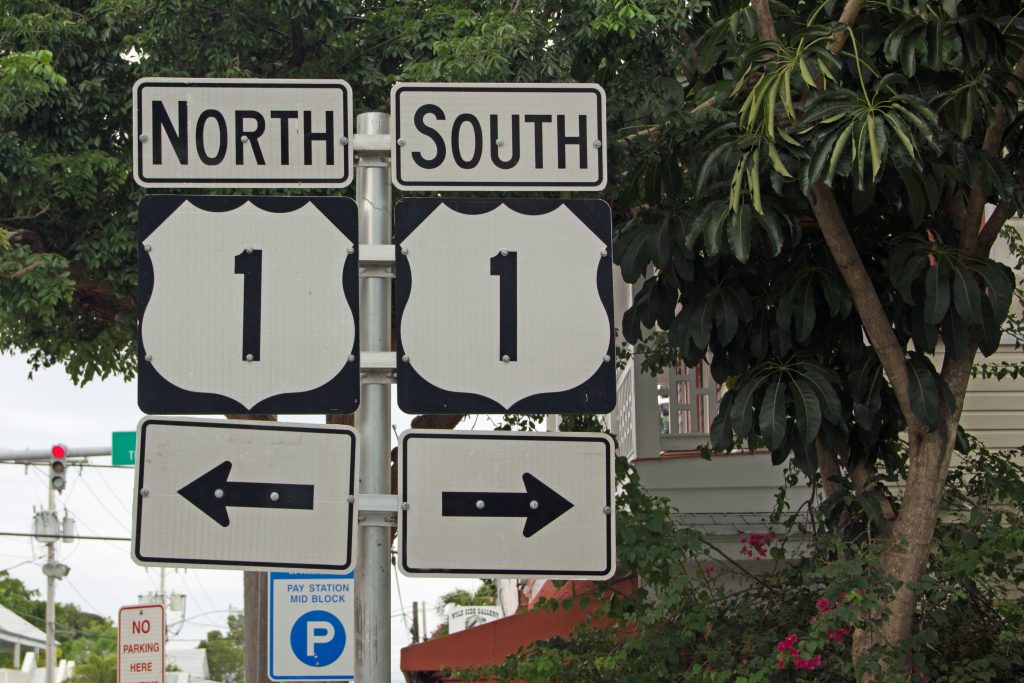 Excessive police force has become a nightly topic in the American news cycle. Ranging from discrimination to life-and-death situations, no one wants to be on the receiving end of mistreatment. In a recent case, a Louisiana woman experienced what she felt was excessive force by law enforcement officers in her own home. The Court of Appeal, however, disagreed. In its decision, the Court of Appeal discussed the burden of proof necessary to succeed on civil rights claims against government officers.
Excessive police force has become a nightly topic in the American news cycle. Ranging from discrimination to life-and-death situations, no one wants to be on the receiving end of mistreatment. In a recent case, a Louisiana woman experienced what she felt was excessive force by law enforcement officers in her own home. The Court of Appeal, however, disagreed. In its decision, the Court of Appeal discussed the burden of proof necessary to succeed on civil rights claims against government officers.
On November 16, 2011, the Gretna Police Department Special Response Team (“SRT”) entered Ms. Willie Nell Bullock’s home to execute a drug warrant. Video footage shows that two minutes after entering the home, an officer escorted Ms. Willie Nell Bullock outside and unfolded a chair for her on which she could sit. Ms. Bullock’s health was poor. She recently underwent surgery and suffered from advanced stage cancer, blood pressure, and diabetes. A year after this event, Ms. Bullock’s family filed a Section 1983 civil rights claim against the Gretna Police Department in federal court. The Bullocks’ alleged that Willie’s Fourth Amendment rights were violated by Gretna Police Department’s use of excessive force. The Trial Court granted the Police Department’s motion for summary judgment because of the dubious reliability of the claims asserted by the plaintiff, and the defendant’s qualified immunity. Ms. Bullock’s family appealed.
To prove a violation of a constitutional right by excessive use of force, the plaintiff must provide evidence that her injury resulted from the defendant’s clearly excessive use of force. That use of force in question must be so excessive that it is objectively unreasonable. Ramirez v. Martinez, 716 F.3d 369, 377 (5th Cir. 2013). This type of analysis requires the U.S. Courts of Appeal to look at the totality of the circumstances in determining whether the plaintiff has met her burden of proof.
 Louisiana Personal Injury Lawyer Blog
Louisiana Personal Injury Lawyer Blog


 Nursing homes have become an integral part of our society due to America’s aging population. Families need nursing homes to help them care for elderly parents and relatives, disabled individuals, and other people requiring increased care. Most nursing homes treat their residents with industry-standard care; but what if you discovered that someone you love had been mistreated, or even abused, by the nursing home you trusted to care for them? This is what happened with the family of Ms. Lessie Porter.
Nursing homes have become an integral part of our society due to America’s aging population. Families need nursing homes to help them care for elderly parents and relatives, disabled individuals, and other people requiring increased care. Most nursing homes treat their residents with industry-standard care; but what if you discovered that someone you love had been mistreated, or even abused, by the nursing home you trusted to care for them? This is what happened with the family of Ms. Lessie Porter. In recent years, many have reported on America’s crumbling infrastructure. Reports show roads, bridges, and dams in disrepair, and raise significant questions about whether governments are applying appropriate modern standards when it comes to our infrastructure. In a recent case, the plaintiffs alleged that the Louisiana Department of Transportation and Development contributed to the death of a teenager in failing to apply appropriate standards in the Highway 923 overlay project. In this case, the Louisiana Third Circuit Court of Appeal discusses some of the evidentiary issues involved in establishing legal liability.
In recent years, many have reported on America’s crumbling infrastructure. Reports show roads, bridges, and dams in disrepair, and raise significant questions about whether governments are applying appropriate modern standards when it comes to our infrastructure. In a recent case, the plaintiffs alleged that the Louisiana Department of Transportation and Development contributed to the death of a teenager in failing to apply appropriate standards in the Highway 923 overlay project. In this case, the Louisiana Third Circuit Court of Appeal discusses some of the evidentiary issues involved in establishing legal liability. In Louisiana, uninsured motorist coverage is mandatory. It seeks to protect drivers from motorists with no or insufficient liability coverage to pay for the damage they cause in accidents. In Louisiana, uninsured motorist coverage guarantees that anyone who purchases insurance on their car will automatically benefit from uninsured motorist coverage equal to the liability limits. This does not mean, however, that insurance companies can’t limit the scope of their uninsured motorist coverage. When coverage is denied, and lawsuits are filed, often times the issue is whether the accident falls within the insurer’s policy. A recent lawsuit in the Louisiana Fifth Circuit Court of Appeal is illustrative.
In Louisiana, uninsured motorist coverage is mandatory. It seeks to protect drivers from motorists with no or insufficient liability coverage to pay for the damage they cause in accidents. In Louisiana, uninsured motorist coverage guarantees that anyone who purchases insurance on their car will automatically benefit from uninsured motorist coverage equal to the liability limits. This does not mean, however, that insurance companies can’t limit the scope of their uninsured motorist coverage. When coverage is denied, and lawsuits are filed, often times the issue is whether the accident falls within the insurer’s policy. A recent lawsuit in the Louisiana Fifth Circuit Court of Appeal is illustrative.  Normally, people pay extra for waterfront property but prefer for their yard to be on a lake front, have an ocean view, or even have a pond on the property. Most would not consider having a home built on an improperly graded yard that fills up with water every time it rains a desirable body of water to have on the property. This is exactly what happened to Debbie Shepard in May of 2009 when her backyard had a hole in it that was promised to be fixed before the closing of the house. Luckily for her, she was entitled to remedies under the Louisiana New Home Warranty Act (“NWHA”).
Normally, people pay extra for waterfront property but prefer for their yard to be on a lake front, have an ocean view, or even have a pond on the property. Most would not consider having a home built on an improperly graded yard that fills up with water every time it rains a desirable body of water to have on the property. This is exactly what happened to Debbie Shepard in May of 2009 when her backyard had a hole in it that was promised to be fixed before the closing of the house. Luckily for her, she was entitled to remedies under the Louisiana New Home Warranty Act (“NWHA”). When a plaintiff files a lawsuit, he or she must make sure that the filing is done in the right court at the right time. The court hearing the dispute must have the power to adjudicate and resolve those claims. Sometimes, certain legal doctrine can bar a court from hearing a case, such as sovereign immunity. And similarly, cases can only be decided if the timing is right – the claim must not be brought to early or too late. The effect of filing the claim in the wrong court or at the wrong time can lead to a dismissal, wasting a substantial amount of time and money. In a recent decision, the United States Fifth Circuit Court of Appeal found that a case against the Secretary of the Louisiana Department of Wildlife and Fisheries was both barred by sovereign immunity and not ripe for adjudication.
When a plaintiff files a lawsuit, he or she must make sure that the filing is done in the right court at the right time. The court hearing the dispute must have the power to adjudicate and resolve those claims. Sometimes, certain legal doctrine can bar a court from hearing a case, such as sovereign immunity. And similarly, cases can only be decided if the timing is right – the claim must not be brought to early or too late. The effect of filing the claim in the wrong court or at the wrong time can lead to a dismissal, wasting a substantial amount of time and money. In a recent decision, the United States Fifth Circuit Court of Appeal found that a case against the Secretary of the Louisiana Department of Wildlife and Fisheries was both barred by sovereign immunity and not ripe for adjudication. The Louisiana Merchant Liability Statute aims to protect persons from unreasonable risks of harm by unscrupulous merchants. At the same time, it limits the liability of merchants and protects them from frivolous lawsuits. In order to succeed on a merchant liability claim, the plaintiff must show that the merchant knew or should’ve known of the dangerous condition that harmed the plaintiff. In a recent case, while considering that a dance ballroom can be considered a “merchant, the Louisiana First Circuit Court of Appeal found that the plaintiff failed to show that the defendants had knowledge or constructive knowledge of the risk of harm.
The Louisiana Merchant Liability Statute aims to protect persons from unreasonable risks of harm by unscrupulous merchants. At the same time, it limits the liability of merchants and protects them from frivolous lawsuits. In order to succeed on a merchant liability claim, the plaintiff must show that the merchant knew or should’ve known of the dangerous condition that harmed the plaintiff. In a recent case, while considering that a dance ballroom can be considered a “merchant, the Louisiana First Circuit Court of Appeal found that the plaintiff failed to show that the defendants had knowledge or constructive knowledge of the risk of harm. In Louisiana, the law benefits those who take timely action in pursuit of their claims or defense. It can also punish the untimely. In a very unfortunate case, the Plaintiff, a grieving widow, missed an opportunity to overturn an adverse trial court decision. In the case, the Fourth Circuit Court of Appeal discusses the procedural avenues of supervisory review available to litigants, highlighting the need to be diligent in meeting procedural requirements.
In Louisiana, the law benefits those who take timely action in pursuit of their claims or defense. It can also punish the untimely. In a very unfortunate case, the Plaintiff, a grieving widow, missed an opportunity to overturn an adverse trial court decision. In the case, the Fourth Circuit Court of Appeal discusses the procedural avenues of supervisory review available to litigants, highlighting the need to be diligent in meeting procedural requirements. Below is a case of a home sale in St. Bernard Parish that didn’t go all too well. In this case, communications between the parties to the sale were delayed and the sale never went through. The case highlights the need to be diligent when buying or selling real estate and the necessity of having a good real estate lawyer.
Below is a case of a home sale in St. Bernard Parish that didn’t go all too well. In this case, communications between the parties to the sale were delayed and the sale never went through. The case highlights the need to be diligent when buying or selling real estate and the necessity of having a good real estate lawyer. It is no secret that a lawsuit has the potential to become a tangled web of procedural issues. This is why it is always a good idea to secure a good attorney with experience in dealing with the court system. Perhaps less common is the situation where the judge, the party responsible for ensuring an efficient and timely resolution of the dispute, gets tripped up in this procedural web. This is exactly the situation below.
It is no secret that a lawsuit has the potential to become a tangled web of procedural issues. This is why it is always a good idea to secure a good attorney with experience in dealing with the court system. Perhaps less common is the situation where the judge, the party responsible for ensuring an efficient and timely resolution of the dispute, gets tripped up in this procedural web. This is exactly the situation below.